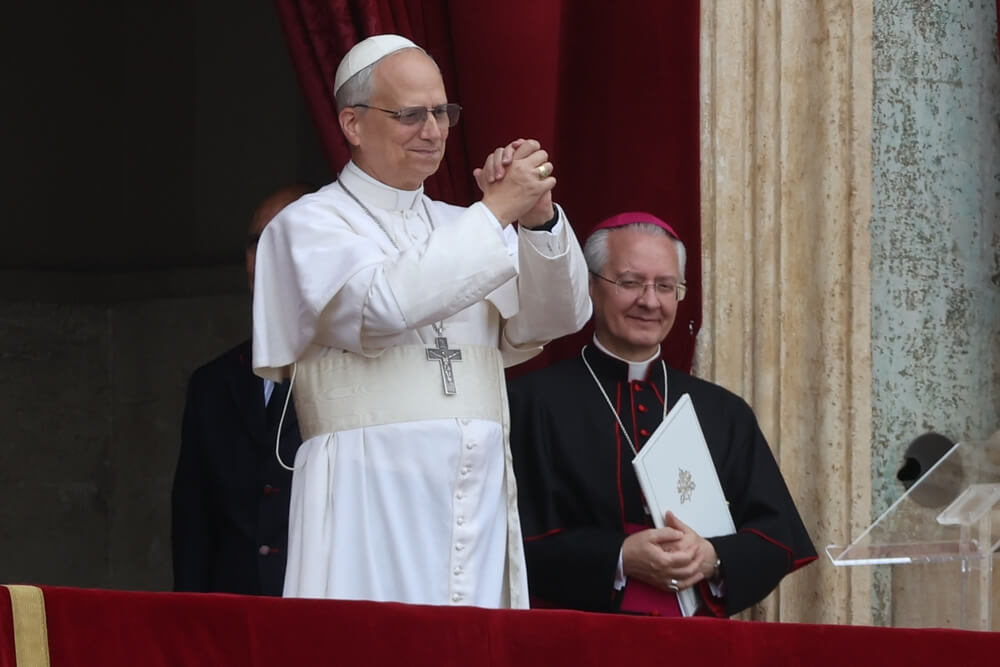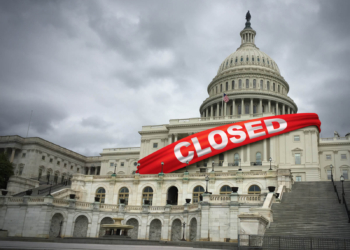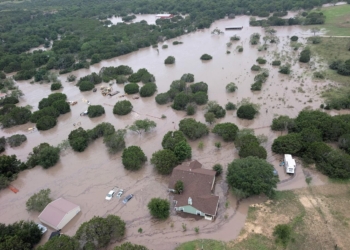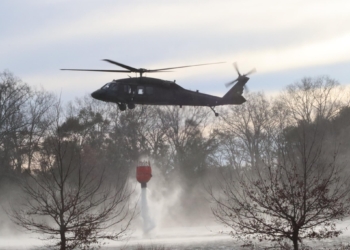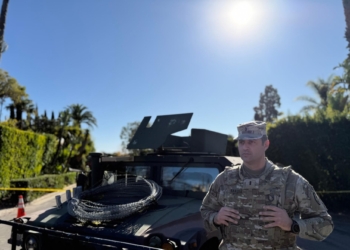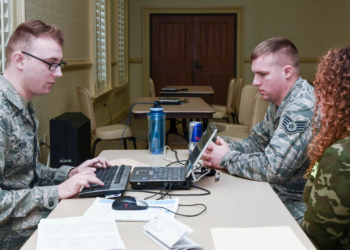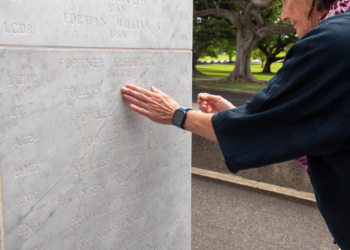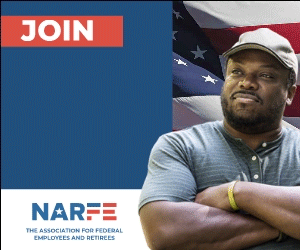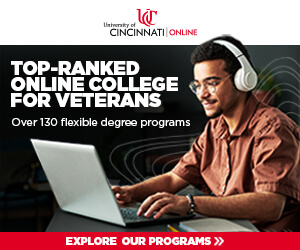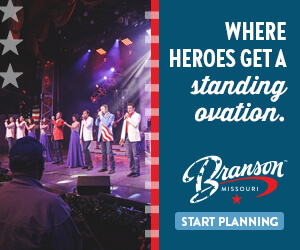Upon his election this past May, Pope Leo XIV, born Robert Prevost, became the first U.S. citizen to serve as pontiff of the Catholic church. A native of Chicago, he is also the first pope with a family history of U.S. military service.
His father, Louis Marius Prevost, was a naval officer who participated in the D-Day landings in Normandy. Between his commissioning in 1943 and the end of the war in 1945, he spent 15 months overseas as executive officer of a tank landing ship and commander of an infantry landing craft. Pope Leo’s oldest brother, Louis Martin Prevost, also served in the Navy for 12 years, according to reporting from Tampa Bay Times.
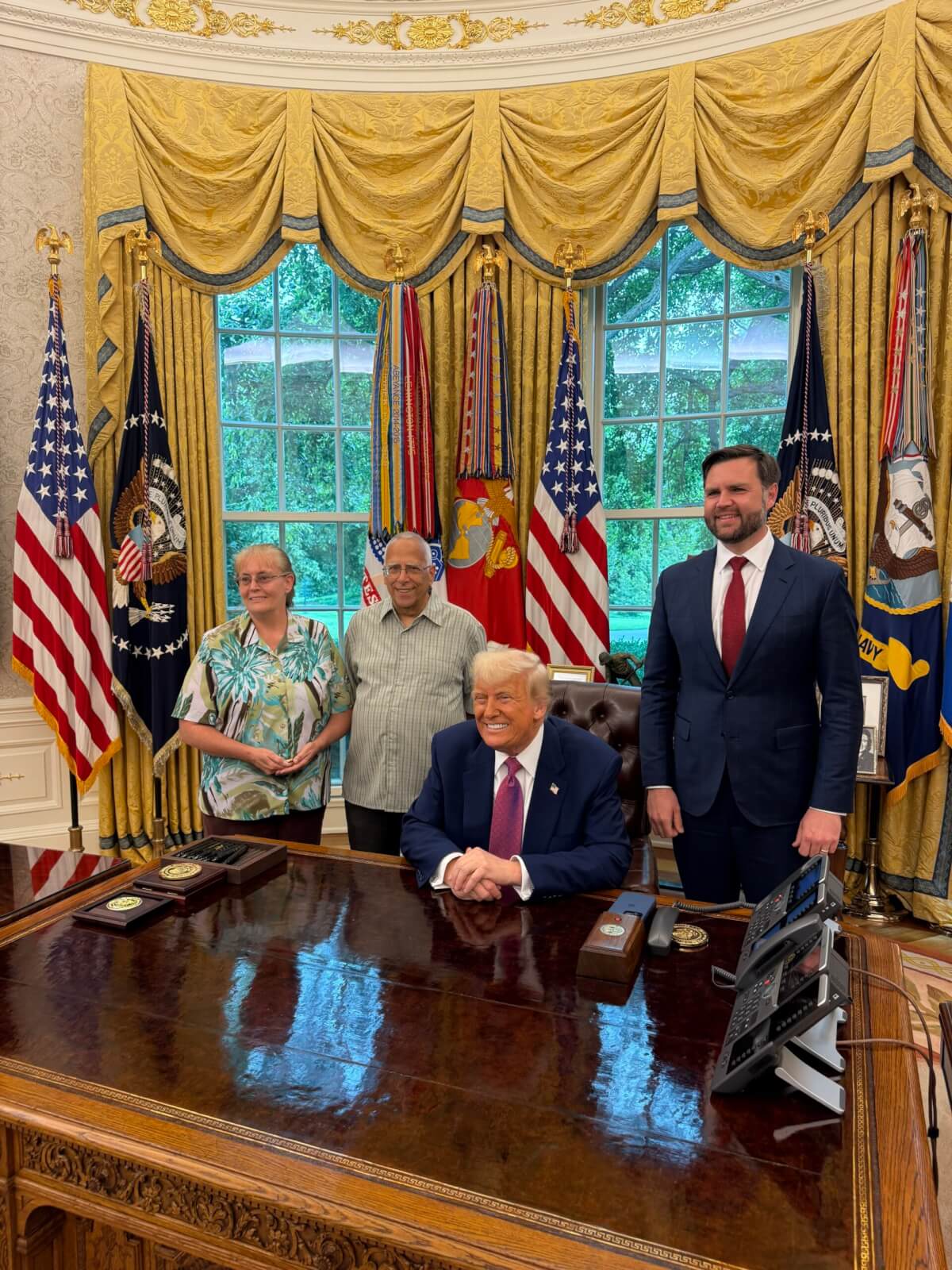
The link between military service and religion is strong. According to a recent report from the Center for Applied Research in the Apostolate, 6% of American men scheduled for ordination in the priesthood this year served in the Armed Forces, while 12% had parents who served in the military.
“Less than 1% of the U.S. population serves in the military,” explained Elizabeth Tomlin, general counsel for the Archdiocese for the Military Services. “But yet, from that less than 1% of the population, we got 12% of our ordained priests this year.”
Tomlin, wife of an active-duty soldier with 24 years of service, sees that as a clear correlation between the desire to serve the country and the desire to serve the church. “There’s something about military service that fosters vocation,” she said.
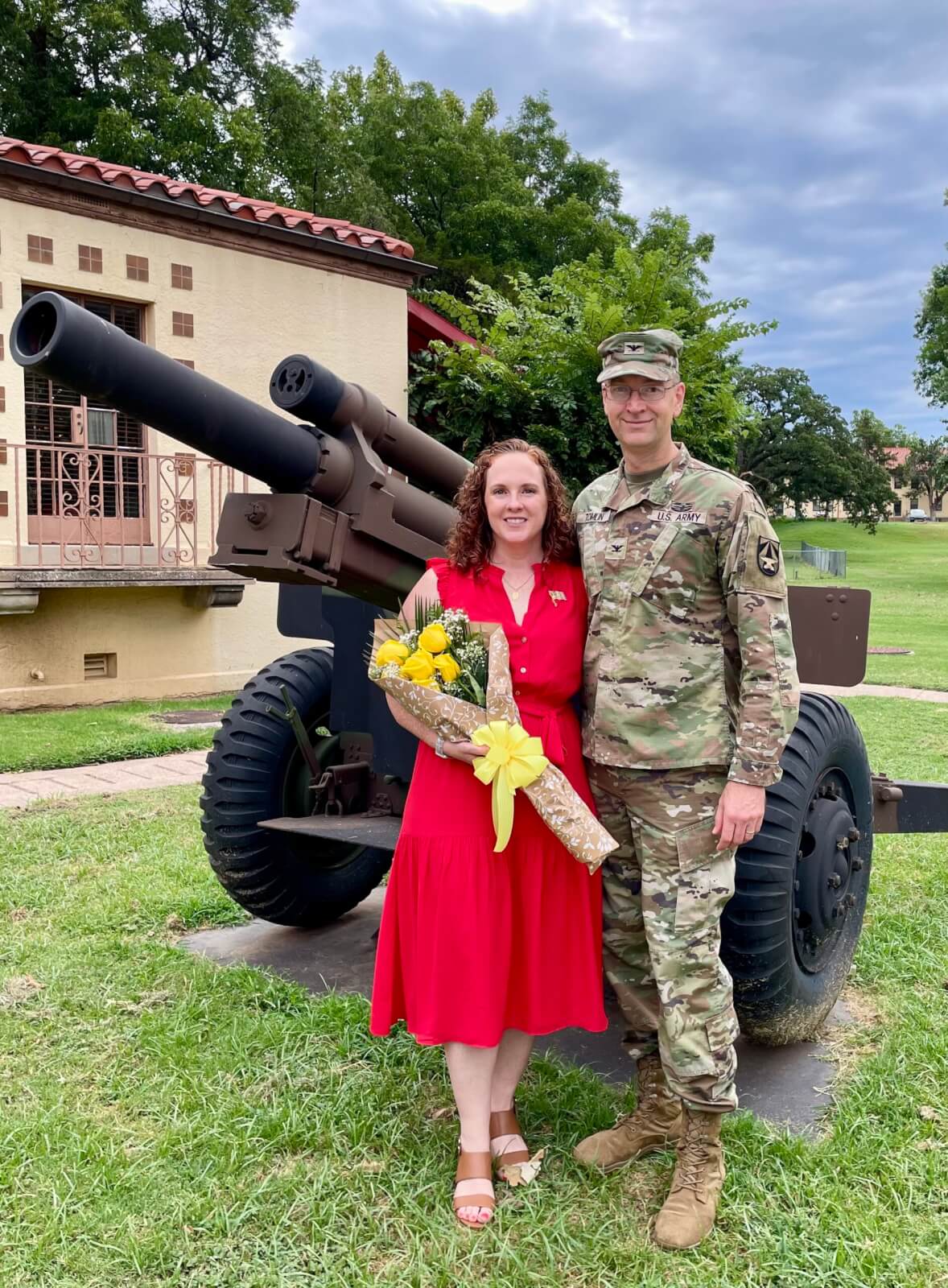
Pope Leo is a member of the Order of Saint Augustine, which devotes itself to the pursuit of both love and learning. He attended Villanova University near Philadelphia for his bachelor’s degree, followed by a Master of Divinity degree from Catholic Theological Union in Chicago, and a Doctor of Canon Law from the Pontifical University of Saint Thomas Aquinas in Rome.
Chris Linzey, command chaplain at Marine Corps Engineer School, Camp Lejeune, thinks that Pope Leo may follow along the progressive path of his predecessor, Pope Francis, who was himself the first pope from the Western Hemisphere.
“If this Holy Father leans a little more progressive, then that’s going to cause some frustration with the more conservative arc of the church,” said Linzey. “The military as a whole tends to be a conservative bubble.”
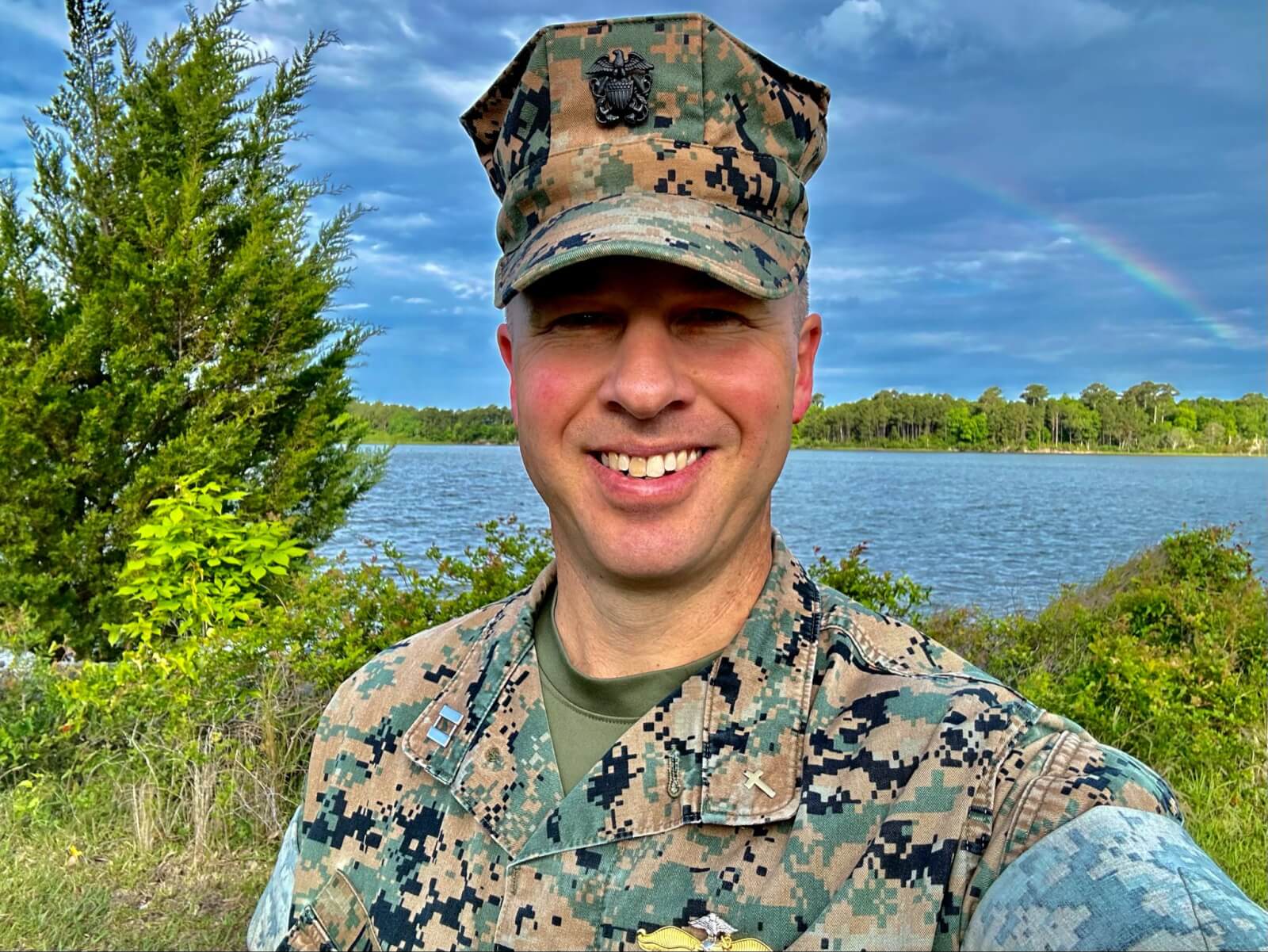
But Linzey doesn’t believe disagreements over theological politics will affect the daily lives of Catholic service members. “They are still going to do what they do regardless, and the faithful will still attend mass regardless.”
To Tomlin, the prism service members should use to view Pope Leo is not continuation of Pope Francis’s progressive legacy, but instead Pope John Paul II’s insistence on treating North, Central and South America as a single continent.
“He’s not just a United States pope, he is also a pope of the American continent,” she said. “His affiliation as a missionary will inspire not only the church in America but also the universal church.”
Pope Leo has largely split his time as a priest between the U.S. and Peru, holding dual citizenship in both countries. He was considered to be a dark horse candidate for the papacy prior to his election on the second day of the conclave. He himself did not expect to be chosen, sending a text message to a friend stating, “I’m an American, I can’t be elected.”
Tomlin expects the military community will see the new pope through a framework of service rather than letting political concerns sway their opinions.
“There’s this commonality in the military of a dedication to selfless service that extends in the way that Catholic service members engage with the church,” she pointed out. “We have a lot of people who are catechists — who teach religious education, who lead Bible studies, a lot of lay people and a lot of priests.”
Tomlin believes that Pope Leo’s energy as a missionary and his dedication to serve the poor sets a great example for military service members.
“You want to see a selfless servant who inspires you,” she said. “To see that from your pope, it can’t help but be inspirational.”
Read comments

